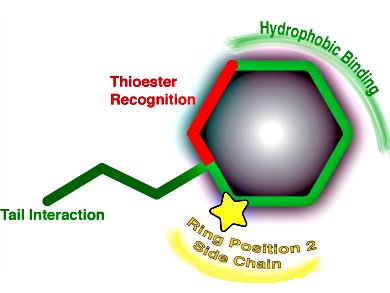Autoinducing peptides (AIPs) are cyclic peptides produced by many strains of Staphylococcus bacteria that signal the local density of the bacterial population. Monitoring of the surrounding population (known as quorum sensing) is an important factor for bacteria to “know” when the conditions are right to attack a host organism. AIPs are macrocyclic peptides that have long been known to initiate the production of bacterial virulence factors, i.e., the proteins responsible for harming the host. A team led by Tom W. Muir, Princeton University, NJ, USA, has probed how the size of the macrocycle affects the effectiveness of the AIP. They have synthesized a series of cyclic peptides containing differing amino acids to complete the structure-activity relationship between AIP and its receptor AgrC.
The activity of AIPs with both expanded and contracted macrocycles was assessed by using both in vitro activity assays and cell-based assays. In general, it was found that the macrocycle is highly intolerant to changes in size, but one position was found to be slightly flexible. All of the data from this SAR, and previous studies, was then compiled into a model for receptor activation by AIP. In particular, three points of contact were identified with the AgrC receptor that are critical for triggering downstream effects.
Now that the important residues have been identified, more effective inhibitors of this pathway can be designed and tested. By disrupting the communication between bacterial cells, a new type of antibiotic agent could prove valuable in the fight against some of the most virulent strains.
- Increasing AIP Macrocycle Size Reveals Key Features of agr Activation in Staphylococcus aureus,
J. G. Johnson, B. Wang, G. T. Debelouchina, R. P. Novick, T. W. Muir,
ChemBioChem 2015.
DOI: 10.1002/cbic.201500006




